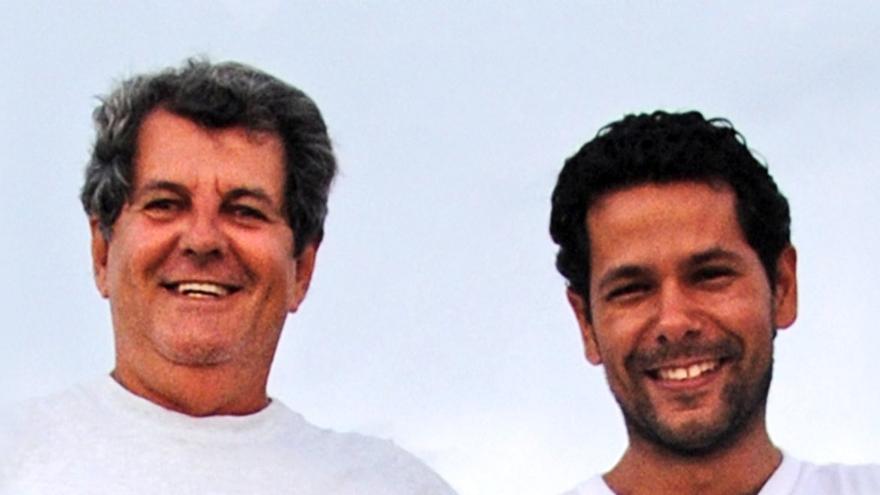
![]() EFE via 14ymedio, Miami, 23 July 2018 — Cuban Dissident Rosa María Payá stressed to EFE that the legacy of her father, Oswaldo Payá, is still alive six years since his death and the constitutional reform under way in Cuba is, in her opinion, both “theater” and a “trap.”
EFE via 14ymedio, Miami, 23 July 2018 — Cuban Dissident Rosa María Payá stressed to EFE that the legacy of her father, Oswaldo Payá, is still alive six years since his death and the constitutional reform under way in Cuba is, in her opinion, both “theater” and a “trap.”
“My father’s words are especially relevant today, as they denounce the attempt of the Castro family and the group of the dictatorship’s generals to perpetuate their power through what my father calls ’fraud change,’ which is exactly what they are seeking with this theater of constitutional reform,” said Payá.
Payá, who leads the Cuba Decides movement, spoke some hours before the celebration of a thanksgiving mass in Miami, held in honor of the sixth anniversary of the “double state crime” whose victims were Cuban dissidents Oswaldo Payá (1952-2012) and Harold Cepero (1980-2012).
The Payá-Acevedo family and the Foundation for Pan American Democracy invited the community to attend this Mass that took place in the chapel of La Caridad in Miami, a place of devotion and gatherings for Cuban exiles.
Payá and Cepero died on July 22, 2012 in Bayamo (Cuba), when the car in which they were traveling left the highway. The car was being driven by a Spanish politician, Angel Carromero, who survived and was convicted in Cuba of reckless homicide.
Rosa María and her mother, Ofelia Acevedo, affirm that it was not an accident, but that Cuban State Security agents hit the car with another vehicle from behind, causing the car to crash.
The daughter of the opposition politician said that the goal of the mass was to “honor” the lives of her father and Cepero and to “thank them for their legacy.”
The family, she added, is encouraged by the recent publication of the first book by the creator of the Christian Liberation Movement, La noche no será eterna (The Night Will Not Be Eternal)(Editorial Hypermedia, 2018), and by the fact that the United States Senate has taken up an initiative “to change the name of the street in front of the Cuban embassy in Washington to Oswaldo Payá Way.”
This initiative dates back to 2015 and is supported by senators such as Ted Cruz, Marco Rubio and Bill Nelson, she said.
With regards to the constitutional reform announced by the Cuban government, she affirmed that “the dictatorship desperately needs to legitimize itself before the great discontent of the people” and the “imminent physical disappearance of the so-called ’historical leaders’.”
It has also influenced, she says, “the support won by the citizen demand for a plebiscite to change the system,” which the Cuban movement she leads proposes.
The government’s constitutional reform will be submitted to a referendum but, according to Payá, the whole process is a “fraud” and “lacks guarantees.”
She emphasizes, in this regard that, the “drafters of the preliminary draft,” members of the National Assembly, “have not been elected by Cuba’s citizens,” and that “(political) campaigning is not possible (because it is outlawed), nor are independent observers (allowed to be) present), nor is parallel counting (i.e. citizen oversight of the vote count),” nor is there freedom to not vote without being coerced” in the announced popular consultation.
But in addition, she added, “Whether YES wins or NO wins, the result is the same: the Communist Party in perpetuity,” because “the dictatorship” has already made clear the irrevocability of socialism and the continuation of the communist party as “governing force of society and the state.”
Oswaldo Payá, winner of the 2002 European Parliament’s Sakharov Prize for Freedom of Thought, will also be remembered this week at a ceremony in Miami with the the official presentation of his book La noche no será eterna, which has been available on Amazon since July 5.
The book is subtitled Peligros y esperanzas para Cuba (Dangers and Hope for Cuba), with a prologue written by Payá’s widow, Ofelia Acevedo, and its purpose is none other than, as the author explains, “to help discover that we can live the process of liberation and reconciliation and walk to the future in peace.”
__________________________
The 14ymedio team is committed to serious journalism that reflects the reality of deep Cuba. Thank you for joining us on this long road. We invite you to continue supporting us, but this time by becoming a member of 14ymedio. Together we can continue to transform journalism in Cuba.
